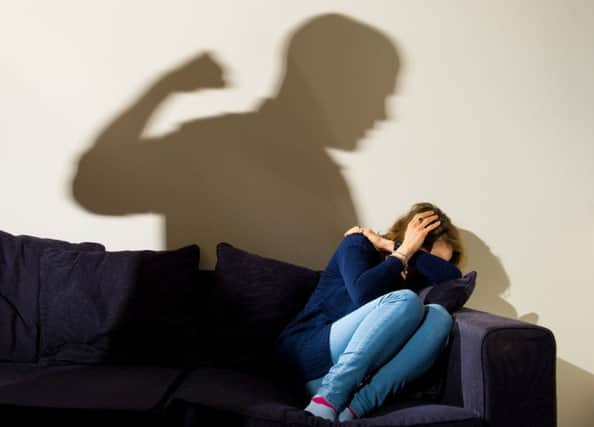Dr Richard Whitecross: Holyrood’s focus on family is an important facet of its work


I was asked my views on the “new Parliament”. I responded cautiously, but expressed my hope that it would make a direct difference to the people of Scotland.
Why? Because after 292 years, necessary modern laws could be debated and enacted without waiting for parliamentary time in Westminster. Scotland was changing.
Advertisement
Hide AdAdvertisement
Hide AdLaw students dread studying constitutional law but I would argue that this is now an excellent time to stand back and reflect on what the Scottish Parliament has achieved since 1999. Especially as Scotland increasingly reflects an alternative approach to that of the Westminster Government, and, arguably, a belief in the rule of law.


In the last 20 years, I think Scotland has changed more than we realise. Returning to teach law, I have increasingly focused on families and children in Scotland and on how laws affect them. From my perspective, there is an important story to be told about the Scottish Parliament through its work on child and family law.
Why focus on child and family law? Simple, it is about you, it is about me, and everybody we come into contact with. These laws address the very social basis of our daily lives.
It is worth remembering that the first election for the Scottish Parliament in 1999 returned a higher percentage of female MSPs than the UK Parliament. Whilst I do not think we can claim that Scotland has achieved gender equality (yet), there has been a steady move towards promoting it.
A quick review of the legislation passed by the Scottish Parliament since 1999 suggests three concerns. The first is about the wellbeing of our children, a concern reflected in the ambitious study Growing Up in Scotland, which tracks the lives of thousands of children and their families from the early years with the aim of providing information to support policy-making.
The second reflects the changing forms of the family in 21st century Scotland, and the third involves addressing the negative impact of domestic abuse on women and children.
One of the first pieces of legislation passed by the new parliament was the Protection from Abuse (Scotland) Act 2001. There are those who argue against the gender focus of domestic abuse policy in Scotland. However, the gender focus is rightly there because women are, based on a range of evidence, the principal victims of domestic abuse. Equally, children are both direct and indirect victims of domestic abuse.
The ongoing issue of domestic abuse was underscored only last year with the Domestic Abuse (Scotland) Act 2018, an important piece of legislation that incorporates coercive control, a sustained pattern of behaviour whereby one person seeks to use power over another.
Advertisement
Hide AdAdvertisement
Hide AdNot all the legislation proposed by either the Scottish Executive or the Scottish Government has been welcome. There was vocal opposition to the now scrapped Named Person role introduced by the Children and Young People (Scotland) Act 2014, and only this year plans were paused to change the law so that people can more easily receive legal recognition for the gender they identify as.
In 2006, the largest piece of legislation was brought in. The Family (Scotland) Act amended the law on cohabitation, prompting comments about “bidey-ins” and a Government information campaign.
Importantly, the Scottish Parliament has sought to promote equality and to address issues faced by minority groups in Scotland. This includes legislation on forced marriages and on female genital mutilation. Later this autumn, the Age of Criminal Responsibility (Scotland) Act 2019 will come into force, raising it from eight to 12.
With further developments to protect the rights of the child in the pipeline, the Scottish Parliament has certainly been busy. However, what lessons can be learned to inform legislative and policy change in the 2020s?
Working with colleague Dr Lesley-Anne Macfarlane, and building on the work of the Family Law Policy and Practice Unit that I established with colleagues at Edinburgh Napier, we have invited leading academics and practitioners to reflect on and discuss the work of the Parliament.
With the support of the Royal Society of Edinburgh, three workshops focusing on child and family law will be held. The first and second are at Edinburgh Napier’s Craiglockhart campus on October 10 and 11, with the final workshop at the Royal Society of Edinburgh on November 21. Academics from a range of disciplines, lawyers, policy-makers, and representatives from third sector organisations will critically examine the work of the Scottish Parliament within the field of Child and Family Law in Scotland.
Dr Richard Whitecross, head of subject – law, Edinburgh Napier University.